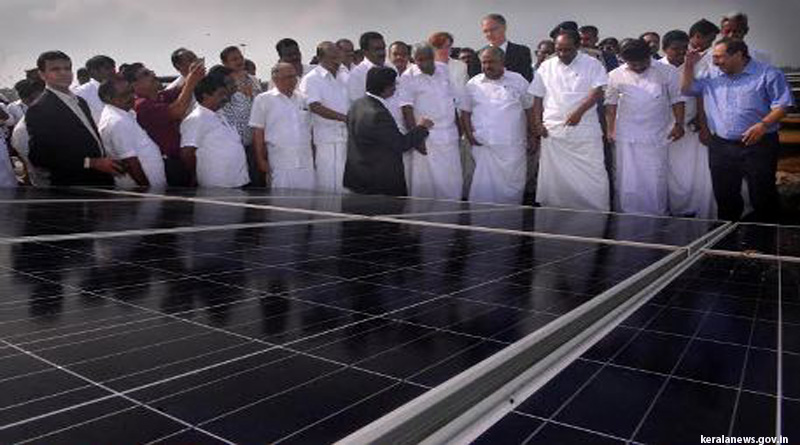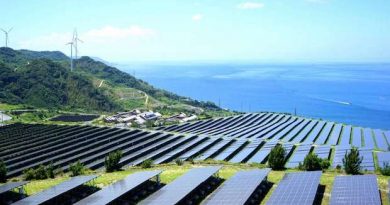It’s official.The UNEP lauds Cochin International Airport as 1st green airport

Kerela, long considered one of the greenest Indian states, with some of the development rankings in the country has another feather in its cap now. Though still behind in the race to generate renewable energy, the state can now boast that it has the world’s first truly green airport. The Cochin International Airport, which has had a solar plant since 2015 powering most of it, finally has a 100% green endorsement.
Formal recognition finally came in this month with the United Nations Environment Programme recognising the Cochin International Airport Ltd (CIAL) as the world’s first fully solar energy-powered airport, its global chief Erik Solheim said yesterday. “We are very happy to do it,” he said when asked whether UNEP was ready to recognise CIAL as the world’s first solar powered airport. “I really want to go around the world and speak about the success story (of CIAL),” the Executive Director of the UN Environment Programme said.
“If an airport in Kerala can run on solar power, why can’t we do that in terminals in other countries?” he asked.
After being accredited by the UNEP (United Nations Environment Program), Erik Solheim, visited the airport this week to look for himself and check on all the authorities responsible for the airport’s successful running and maintenance. “When you’re a pioneer, others follow. Cochin International Airport is completely solar-powered. From solar panelled car parks to solar farms, what a sight! Time now for others to follow,” he said.
We need pioneers to step up to deliver the change our environment needs. @ErikSolheim visited @KochiAirport in Kerala India, which is powered by the sun, & encouraged Kerala's young environmentalists to pursue their passion for a better planet. @moefcc @drharshvardhan pic.twitter.com/kH4SReeEdg
— UN Environment (@UNEnvironment) May 28, 2018
Solheim met with other environmentalists and state authorities to discuss the commendable work being done by the state for the environment. Also meeting with the Chief Minister to discuss areas of collaboration with the UN Environment.
The airport will get most of its energy from the 12 MW solar power project that has been set up within the airport complex, over 45 acres. Multiple panels were also installed across the entire facility which included car parks and roofs. German company Bosch won the bid for Rs 62 crore to complete the project in 3 years. The project components include PV modules of 265Wp capacity manufactured by Renesola, and inverters of 1MW capacity manufactured by ABB India. With eight smaller hydroelectric power projects in the vicinity of the airport to take up the total energy generated to over 30 MW, with plans of increasing it to 40 MW.
Lie most solar installations in India, the solar plant does not have any battery storage, as it is connected directly to the grid, providing the grid as much power as it consumes, or more now.
The airport also houses an organic farm which over the past few years has yielded close to 80 tonnes of organic vegetables which are sold in the market and to the staff. V J Kurian the managing director of the airport said, “CIAL has become the first airport in the world; fully powered by Solar Energy in 2015. The company has already signed a MoU with Ghana for setting up solar power plants in three airports.”
![]()




